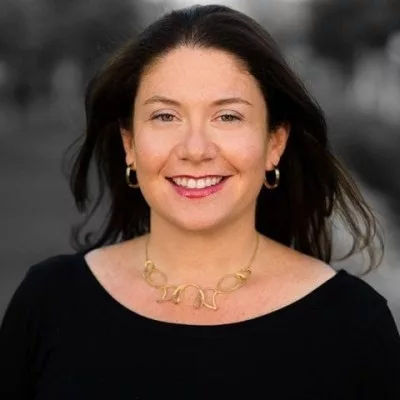Surgical Coordinator Spotlight: Jacqueline Wertman | SurgiSnacks Episode 7
Listen On :
Join us for a special Surgical Coordinator Spotlight series of SurgiSnacks. Founder and CEO of Surgimate, Rebecca Brygel, interviews Jacqueline Wertman, a surgical coordinator of over 30 years. Learn about the start of Jacqueline’s career and what a day in the life of a surgical coordinator looks like at OrthoNY. Sign our petition on
Related content:
Join us for SurgiSnacks, the podcast that delivers bite-sized insights into the world of surgical coordination. Hosted by Al & Justin of Surgimate, the surgical coordination software company, each episode features practical tips and best practices for streamlining your surgical practice, enhancing your profitability, and improving the patient experience. Subscribe on YouTube, Spotify, or Apple Podcasts.
Welcome to today’s episode of
our Surgical Coordinators Spotlight Series.
My name is Rebecca Brygel, and I’m the
founder and CEO of Surgimate, and I’m very
pleased to be hosting today Jacqueline Wertman
a surgical coordinator from Ortho New York.
Welcome, Jacqueline, and thanks for joining us today.
Good morning and welcome.
Thank you for having me.
Oh, it’s such a pleasure, and so good to see you again.
So, Jacqueline, we’re talking all about surgical
coordinators and what wonderful professionals they are.
Tell us a little about your
professional journey as a surgical coordinator.
Okay.
I started with Dr. Kavanaugh
in 1985 as a front-end receptionist, and then
three years later, I was promoted to a secretary,
and I’d been with him until he retired in 2021,
booking surgeries and taking care of all of his patients.
And then when Dr. Kaback
joined our group in 2011, I have
been his care coordinator and surgical scheduler.
Wow.
So you’ve been doing this for…I can’t even do the math.
Over 38 years.
Wow. Amazing.
That’s wonderful.
And how did you find your first job with Dr. Kavanaugh?
Actually, there was a friend of my dad’s who at
the time was the office manager, and at the time
they were looking for someone to run the front desk.
And I happened to be in between semesters
at college, thinking I was going back in
the fall to switch my major.
However, when I got there, I really loved orthopedics.
So I continued my journey there all these years.
Oh, wow.
That’s so amazing.
Funny.
I also started out as a surgical coordinator for my uncle.
It really is.
And I used to have this thing where he’d
drive me crazy. We didn’t have cell phones
back then. It was like the late 90s.
So I’d leave the office, and then he’d call me
at home and say, I have an add-on.
Yeah, right.
I’d get phone calls from a telephone booth.
There was no cell phones.
He’d pull over and call me.
Yeah.
What kind of specialists are
Dr. Kavanaugh and Kaback?
Dr. Kavanaugh is a general orthopedic surgeon, and
Dr. Kaback specializes in upper
extremity, shoulder and elbow.
And have you enjoyed, obviously,
they’re different kinds of surgeons.
Has one been more interesting to you than another?
Actually, general orthopedics has been very
interesting because it’s a broader range
of different types of fractures. Dr. Kavanaugh
would do anything from fingers,
hands, wrists, foot, ankle, achilles tendon,
total hips, total knees.
So it was a very nice journey of
assortment, and I learned a lot with regards
to the booking, the healing process.
It was a very successful adventure, I would
say for many years of my life.
Nice.
At the end of the rope also to see
the patients healing and walking again, broken hips.
It was just quite a variety,
so I’ve enjoyed the variety.
Wow, that’s so interesting.
And I’m guessing in that kind of previous
generation of surgeons, there was less subspecialty, right?
Correct.
Very less. Actually, back then,
this is going back to the 80s,
everybody pretty much was general, unless you specialized, maybe
in just hips and knees and then some spine
surgeons, but everybody pretty much was general back then.
Very different to today.
Very different than today.
And so tell me, Jacqueline, what is
your favorite part of the job?
My favorite part of the job, actually, is talking
to the patient, getting to know them, getting a
little bit of the history of the injury.
And quite frankly, I really enjoy the success
at the end, seeing people. People will call
me and say, oh, I feel like $100.
I can throw the baseball again.
I can reach back and shower my back, wash my
hair, because now I’m doing a lot of the upper
extremity, and some people can’t even reach around back.
So it’s very pleasing.
Have you ever received any handwritten notes
or anything like that from patients?
Oh, yes.
I’ve gotten lots of notes.
I’ve gotten gifts over the years. Oh, yeah. Trinkets.
It’s nice to be acknowledged for the work that you do.
At the holiday time
they send us candy. Yeah.
Really nice little thankful notes.
It’s really nice.
And what do you think is the easiest part of the job?
And what do you think is the hardest part of the job?
The easiest part, probably, I would say, is I
really enjoy talking to patients, getting to know the
people, and it’s nice because people will call, and
they may just ask for me.
So that’s very nice.
It makes my job easier.
And when you get to know a person
and they just don’t become, they become individualized
is what I’m trying to say.
I really enjoy that.
The hardest part sometimes is just getting everything
to coordinate with the busy doctor’s schedule, and
I’m trying to juggle the patient’s schedule.
Or you’re trying to, when you have to rearrange patients
that I don’t care to do, because I know people,
especially people who have children in school or need daycare
they have to set up, say, like they want to
come in on a holiday when there’s no school, and
you’re trying to accommodate everyone’s schedule.
And I don’t like to disrupt schedules.
Doctors and I don’t like
to disrupt the patient’s schedule. That’s one thing.
That’s my least favorite thing to do. Sure.
Yeah, that makes sense.
And what are some of the kind of workarounds
you’ve found to kind of mitigate some of the
problems you’ve had in surgical coordination over the years?
Because it’s about 100 tasks that you have
to do to coordinate each case, right?
Yeah, it’s very detailed.
It’s a bit of a process.
Over the years, I have learned to reach out for
help instead of internalizing a lot myself, but reach out
to a couple of coworkers who generally can help me
along the way if I need help.
I’m struggling a little bit if I’m a little bit behind.
Once you get into a groove of how you almost
have, like, a mindset in the morning of what you
want to get accomplished, I like to tackle, say, like,
the phones and my immediate tasks first, and then I
like to sit down and schedule my patients for surgery.
I like to get the little things out of the way first.
Makes sense.
Concentrate on my booking so that I’m not being interrupted
or pulled in so many directions during the day.
Right.
For example, when you call the
hospital, I don’t know, St.
Peter’s Memorial, whoever, do you call them about multiple
patients at once, or is it just one-off?
Well, right now we have assigned time,
so certain block times at each facility.
However, I just had a fracture come in, so I did have
to call the hospital, had to wait about 15 minutes for the
gals to call me back to let me know what day and
time I could do the fracture for next week.
That is one downside.
When you’re full for the upcoming week and
you can’t add any more patients to your
schedule, that can be a little juggling.
If you have to call the hospital, they have
to assign you a day and a time, and
you have to coordinate with your schedule here.
You may have to reschedule your physician’s patients
and your physician assistant’s patients to coordinate to
get them both to the OR.
You mean you have to cancel
some clinic to get the surgery done?
I had to because I have a fracture to add
on for next week, so that’s a little bit of juggling.
And, Jacqueline, do you
book a lot of cases at ASCs?
Is it easier at ASCs? Harder?
I prefer to book at the Ambulatory Surgery Center.
It’s much easier. Much easier.
They’re in and out on the same day, and
you can book more cases there in a day.
Do you think the patients are happier when
they don’t have to go to the hospital?
Like, do they prefer to go to the ASC?
I think they prefer to. They’re in and out
on the same day, and it’s great care.
Most of our patients go right down
the street to our surgery center.
That’s great.
And what skills of yours, and you should
feel free to be really complimentary to yourself,
Jacqueline, what skills do you possess that have
made you such a successful surgical coordinator?
Well, number one, you have to be able to multitask.
That is constant.
You’re picking up the phone in the middle of that.
You’re trying to, you’re talking to the patient, but you
may have to put them on hold, call the hospital
to make sure that you can get the time.
Set up the coordination if it’s an emergency,
set up the coordination at the primary care’s
office for their physical blood work, their EKG.
And I’m constantly writing notes down as I’m talking to the
patient so that I don’t miss a step in my brain.
I process everything while I book the surgery.
And while I’m doing that thought process, I’m also
jotting it down as I speak to the patient.
I use that checklist, and that’s my routine.
So what do you do at home in your
spare time that requires that much surgical coordination?
Like executive function?
Do you have a hobby or something you do at
home that kind of requires all those skills as well?
When I’m home, I love to garden.
I love to float in my pool and
relax so that my brain decompresses, actually.
Yeah, it’s so much hubub here
every day, but I’m used to it.
I’ve done it for a long time.
And your mind is constantly going
here because you’re constantly thinking ahead.
And you’re not just concentrating on one patient.
You’re concentrating on a lot so I tend to write a
lot of things down, and my doctor will call with random requests
in the middle of the day, so I tend to write things
down so I can keep track of it all.
But you have to be able to multitask.
And if he wants you to run to the room or
hospitals on this line, you’re getting paged for this line.
So it’s just a lot to juggle.
So when I get home, I like to read.
I like to float in my pool, like
I said, and I love to garden.
Well, I always say, Jacqueline, I guess
you’re scheduling at least about 35 cases
a month or something like that.
Oh, yeah.
There’s quite a bit. Even eleven in one day last week.
Okay.
So it’s probably more like 50.
Yeah, it’s a lot.
It’s about 100 tasks a case.
So it’s like 5000 cases (tasks) a month.
I kind of struggle to remember everything
I want to buy at the supermarket.
Right.
So I know that it’s a lot going.
And really, what we’re doing in this series,
Jacqueline is kind of shining the light on
surgical coordinators such as yourself, who have been
in this industry for varying amounts of time.
In your case, 38 years, I think you said, and
who have obviously provided care to thousands of patients.
And while you’re not doing the surgery yourself,
you’ve done a wonderful job at getting them
from the doctor’s office to the OR.
And hopefully recovered, feeling better,
less pain, pain-free.
And we just want to thank you
for all those years of service.
And hopefully, we will be creating
a surgical coordinators recognition day, in
which, of course, we recognize you.
So thank you so much for your time today.
Thank you very much. I appreciate it.
I appreciate your product.
It’s a wonderful product.
Makes our job so much easier.
I really appreciate it.
Thanks for being such a great, you’ve been great users as well.
All right, take care.
Related Episodes
When Patient Reviews Sting Part Two | SurgiSnacks Episode 4
Labor Day Tribute: Celebrating the Unsung Heroes of Surgical Practices | SurgiSnacks Episode 6
MEET THE GUEST

MEET THE HOSTS

Rebecca Brygel
Founder and CEO of Surgimate
A career entrepreneur, Rebecca is the driving force behind the company and its visionary. She’s also super hands-on, as comfortable chatting with schedulers about their workflow issues as she is in the boardroom. Instantly recognized by her Australian accent, Rebecca holds a BA in Business Management from Monash University and a Masters in Philosophy from Yeshiva University.

Al Norweb
Chief Growth Officer
Al Norweb is focused on everything and anything that brings the power of Surgimate to more surgical practices. Al mostly recently served as the General Manager of Orthopedics for a leading EHR and practice management software company where he oversaw a near quadrupling of their book of business. Based in Miami, FL, Al holds an MBA from Harvard Business School, an MPA from Harvard Kennedy School, and a BS in Economics from Duke University.
be our guest?
Would you like to be part of our next podcast episode? If so please contact us for more details.









Jacqueline Wertman is an experience surgical coordinator at OrthoNY with over 30 years. Her skills and knowledge have provided the practice with organized surgery planning.
Jacqueline Wertman Surgical Coordinator at OrthoNY